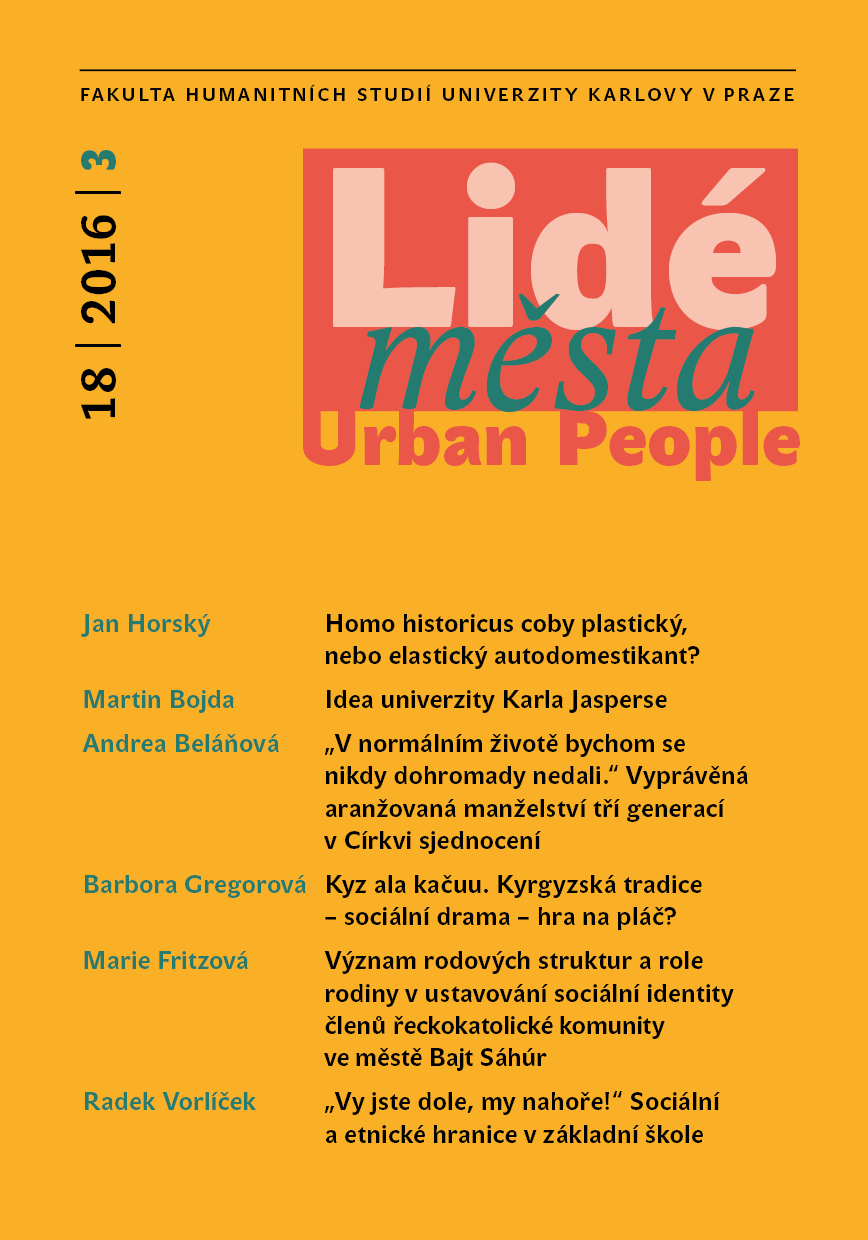Význam rodových struktur a role rodiny v ustavování sociální identity členů řeckokatolické komunity ve městě Bajt Sáhúr (Palestiská autonomie)
The Meaning of Family Structures and the Family’s Role in Establishing the Social Identity of Members of the Greek‑Catholic Community in the Town of Beit Sahour (Palestinian Autonomy)
Author(s): Marie FritzováSubject(s): Politics / Political Sciences, Geography, Regional studies, Theology and Religion
Published by: Univerzita Karlova v Praze - Fakulta humanitních studií
Keywords: Beit Sahour; Melkite Greek Catholic Church; social identity; famil y; kinship; field research; Arab Society
Summary/Abstract: This article depicts the social identity of the Greek-Catholic Community in the town of Beit Sahour, with a focus on the internal interactions and relationships of its members. The present article focuses mainly on the functioning of family ties and kinship. This article is primarily based on the field research that I carried out between 2009 and 2012 in the West Bank, and which is the main source of data. By analysing and interpreting this data, I try to answer the question of how specific partial internal interactions and relationships within the community confirm or undermine the social identity of its members. This article describes the specific internal life of the Greek-Catholic Community in the town of Beit Sahour, and tries to uncover the practices that strengthen and maintain social identity within the group, such as clan and family relationships, connected also with gender issues and everyday stereotyped behaviours. I try to also show the social identity of the members of the Greek-Catholic Community shaped by family and clan structure through specific situations, such as caring for a sick member of this Community, raising children, and the specific roles of each member of the nuclear families.
Journal: Lidé města
- Issue Year: 18/2016
- Issue No: 3
- Page Range: 409 - 440
- Page Count: 32
- Language: Czech

